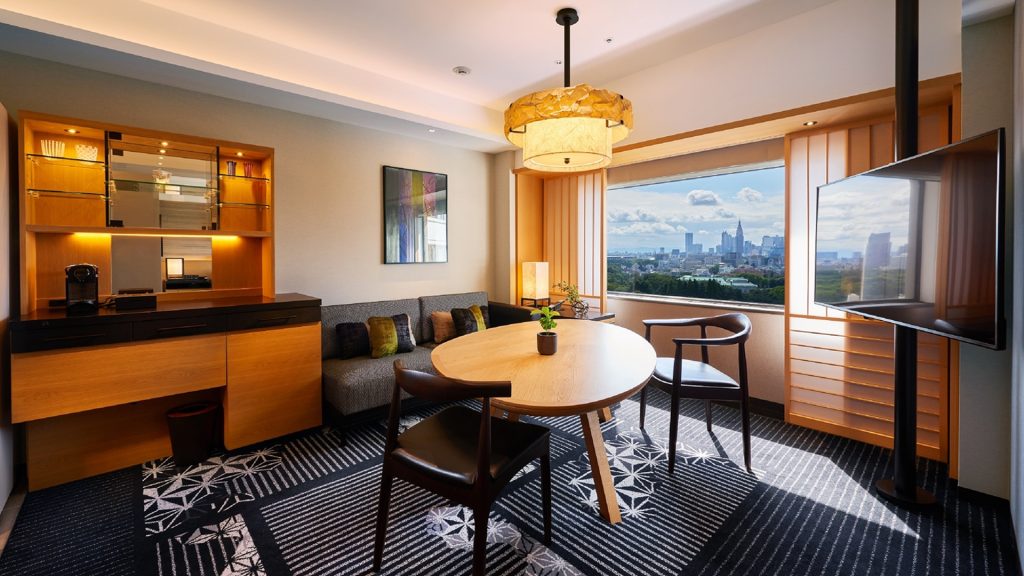The way people live and travel has changed dramatically in recent years. With globalization, remote work, and increased mobility, housing solutions need to be more adaptable than ever. Serviced apartments have emerged as one of the most popular choices for professionals, students, families, and travelers, offering a perfect blend of home comfort and hotel convenience.
This in-depth guide explores everything you need to know about serviced apartments — what they are, their benefits, market trends, popular locations, and why they are shaping the future of urban living.

Key Takeaways
- Serviced apartments are fully furnished rental units that include hotel-like services.
- They are ideal for short- and long-term stays, offering flexibility for tenants.
- Core features include furniture, kitchen facilities, Wi-Fi, and optional cleaning services.
- Popular among business travelers, expats, students, families, and digital nomads.
- Cities like London, New York, Dubai, and Singapore lead the global serviced apartment market.
Introduction to Serviced Apartments
A serviced apartment is a fully furnished rental designed for both short-term and long-term use. Unlike traditional apartments, serviced apartments include additional services such as cleaning, concierge, and utilities, combining the best aspects of home living and hotel stays.
They have become increasingly popular with corporate travelers, international students, and digital nomads who need more flexibility than a traditional rental but more space and privacy than a hotel.
Why Choose Serviced Apartments?
Flexibility for Different Lifestyles
Serviced apartments cater to a wide audience — from families relocating to professionals on three-month assignments.
Cost Savings Compared to Hotels
For long-term stays, serviced apartments are more cost-effective than hotels, offering more space and included amenities.
Immediate Comfort
Move in with just your luggage — everything else is already provided.
Privacy with Services
Tenants enjoy privacy like in a private apartment but can also benefit from optional hotel-style services.
Features of Serviced Apartments
Serviced apartments vary by city and budget, but most include:
- Fully furnished living spaces
- Kitchen and laundry facilities
- Wi-Fi and utilities included in rent
- Regular cleaning or housekeeping
- 24/7 customer support or concierge services
- Flexible lease terms (short, medium, and long stay options)
Who Uses Serviced Apartments?
Business Travelers
Executives on temporary assignments prefer serviced apartments near business districts.
Expats and Relocators
Families and individuals moving abroad rely on serviced apartments during transition periods.
Students
International students benefit from furnished, flexible apartments close to universities.
Digital Nomads
Remote workers who travel frequently enjoy the balance of comfort and convenience.
Tourists and Families
Travelers staying longer than a week find serviced apartments more affordable and spacious than hotels.
Types of Serviced Apartments
Studio Serviced Apartments
Compact, self-contained units ideal for singles or short-term visitors.
One-Bedroom Serviced Apartments
Popular among professionals and couples who want more space than a studio.
Family-Sized Serviced Apartments
Larger units with multiple bedrooms, perfect for families or groups.
Luxury Serviced Apartments
High-end properties offering premium amenities like gyms, pools, and concierge services.
Advantages of Serviced Apartments
- Ready-to-Move-In: No furniture or setup needed.
- Flexible Contracts: Options from weekly stays to annual leases.
- Cost Efficiency: More affordable than hotels for longer stays.
- Convenience: Includes cleaning, Wi-Fi, and utilities.
- Lifestyle Benefits: Combines home comfort with hotel-like perks.
Market Trends in Serviced Apartments
The serviced apartment market is growing worldwide due to:
- Corporate Travel: More companies are housing employees in serviced apartments instead of hotels.
- Remote Work: Digital nomads drive demand for flexible housing.
- Tourism Growth: Longer-term tourists prefer apartments over hotels.
- Urbanization: Cities with rising populations need adaptable housing solutions.

Popular Cities for Serviced Apartments
London
One of the largest markets, offering luxury apartments in Kensington, Canary Wharf, and near major universities.
New York City
High-rise serviced apartments in Manhattan and Brooklyn serve professionals, students, and families.
Dubai
Luxury serviced apartments with premium amenities attract business travelers and expats.
Singapore
Strategically located apartments cater to corporate relocations and students.
Berlin
Affordable serviced apartments popular with young professionals and international students.
Sydney
Beachside serviced rentals combine lifestyle appeal with business accessibility.
Legal and Leasing Considerations
Tenants should carefully review leasing agreements when renting serviced apartments.
- Inclusions: Check which services are included (Wi-Fi, utilities, cleaning).
- Deposits: Usually higher than unfurnished apartments due to furnishings.
- Lease Length: Flexible options range from a week to over a year.
- Local Laws: Some cities regulate short-term serviced rentals, so compliance is key.
Benefits for Landlords
Serviced apartments also bring advantages to property owners.
- Higher Rental Yields: Furnished serviced rentals command premium rents.
- Global Market Reach: Attract international tenants and travelers.
- Lower Vacancy Rates: Continuous demand keeps occupancy steady.
- Short-Term Flexibility: Landlords can adapt to market changes quickly.
Smart Tips for Tenants
- Book Early: Prime serviced apartments in major cities fill up fast.
- Confirm Services: Ensure cleaning, Wi-Fi, and utilities are included.
- Use Virtual Tours: Check the apartment before committing.
- Review Contracts: Understand termination, renewal, and service terms.
- Check Location: Proximity to work, transport, and schools matters.
Smart Tips for Landlords
- Invest in Durable Furniture: Reduce replacement costs over time.
- Target Business Districts: Attract long-stay corporate tenants.
- Offer Flexible Stays: Both short- and long-term leases appeal to diverse tenants.
- Highlight Services: Emphasize included amenities in listings.
- Use Professional Platforms: Partner with listing services to increase visibility.
Conclusion
Serviced apartments are transforming modern housing by combining the independence of home living with the services of hotels. With flexibility, cost savings, and lifestyle benefits, they have become the preferred choice for professionals, expats, students, and travelers worldwide.
As mobility increases and work becomes more global, the demand for serviced apartments will only continue to grow, making them a smart choice for tenants and landlords alike.
FAQs About Serviced Apartments
1. What is a serviced apartment?
A fully furnished rental unit that includes hotel-style services such as cleaning, concierge, and utilities.
2. Who rents serviced apartments?
Business travelers, expats, students, families, digital nomads, and tourists.
3. Are serviced apartments more expensive than regular rentals?
Yes, but they include furniture, utilities, and services, making them cost-efficient overall.
4. How long can I stay in a serviced apartment?
Lease terms range from weekly stays to long-term contracts of a year or more.
5. What services are included?
Furniture, Wi-Fi, utilities, cleaning services, and sometimes concierge or gym access.
6. Are serviced apartments cheaper than hotels?
For long-term stays, serviced apartments are generally more affordable than hotels.
7. Do serviced apartments require deposits?
Yes, deposits are required and may be higher due to furnishings.
8. Are serviced apartments available globally?
Yes, they are popular in cities like London, New York, Dubai, Singapore, and Berlin.
9. Do landlords benefit from offering serviced apartments?
Yes, they generate higher yields and attract international tenants.
10. Are serviced apartments safe for international renters?
Yes, especially when booked through verified platforms with secure payments.
